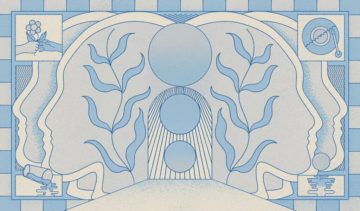Frans de Waal in The New York Times:
 One of the greatest physicists of the last century, Paul Dirac, had no use for emotions. “My life is mainly concerned with facts, not feelings,” he declared. He loved his emotion-free existence, or so it seemed, until he met a vivacious woman who was his exact opposite — impulsive and ardent. She became his wife and not only made him a happy man but also dramatically changed his personality. He became a feeling human being, which in turn affected his science. Yes, physics! If being logical and rational were all that mattered, we wouldn’t need actual physicists. The job could be done by computers. Later in life, Dirac became so convinced that knowledge needs to be combined with intuitions, crazy hunches and irrational perseverance that whenever he was asked about the secret to his success, he stressed that one needs to be guided above all by one’s emotions.
One of the greatest physicists of the last century, Paul Dirac, had no use for emotions. “My life is mainly concerned with facts, not feelings,” he declared. He loved his emotion-free existence, or so it seemed, until he met a vivacious woman who was his exact opposite — impulsive and ardent. She became his wife and not only made him a happy man but also dramatically changed his personality. He became a feeling human being, which in turn affected his science. Yes, physics! If being logical and rational were all that mattered, we wouldn’t need actual physicists. The job could be done by computers. Later in life, Dirac became so convinced that knowledge needs to be combined with intuitions, crazy hunches and irrational perseverance that whenever he was asked about the secret to his success, he stressed that one needs to be guided above all by one’s emotions.
Dirac’s case is one of many examples offered by Leonard Mlodinow in his latest book, which treats the mental impact of the emotions. To get an eloquent reminder of this impact is timely, given the stream of recent books paying one-sided attention to rationality and knowledge. We celebrate logic and reasoning and disparage the emotions, which we find too close to our bodies — those flawed vessels of flesh and blood that carry us around and bother us with irresistible needs and urges. The “flesh is weak,” we say. Throughout history, great (male) thinkers have argued that while animals (and women) run after their emotions and impulses, the human mind is at its noblest when it transcends these. They proudly declared “man” the only rational being on the planet.
More here.
